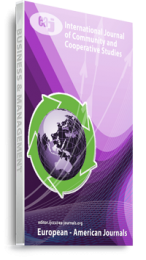OECD figures (2022) indicate that more than half of Albania’s population today lives outside the country. It is worrisome that 71% of young people in the Western Balkan countries consider moving abroad… (SCiDEV, 2023). This paper explores the role of family in youths’ migration decisions or decision making processes. The research aims to understand and examine how family relationships, dynamics and expectations shape youths’ decisions or decision-making processes to migrate. The main research questions are: What are the main theories that explain the influence of the family on youths’ migration decisions or decision-making processes? What are the opinions of young individuals regarding the role of the family in potential or real decision-making processes or decisions to migrate? Does the family serve as a motivator or a barrier in youths’ decisions or decision-making processes to migrate? The paper takes a qualitative approach, using focus groups as a qualitative research instrument, to emphasize the intricate interplay between family dynamics and youths’ migration decisions or decision-making processes. Key findings indicate that families have been impacted by Albanians’ migratory history, which has influenced families to push young individuals to pursue professional opportunities in their home country and obtain a solid education. According to the young individuals who participated in the study, migrating from their family is viewed as the ‘final opportunity’ if their life in their home country fails to match their expectations. Strong family relationships impact their migration decisions, and in the gender context, a young and unmarried girl is considered inappropriate to migrate unless it is for temporary or transitory academic or cultural mobility purposes.
Keywords: Decisions, family, youth migration

